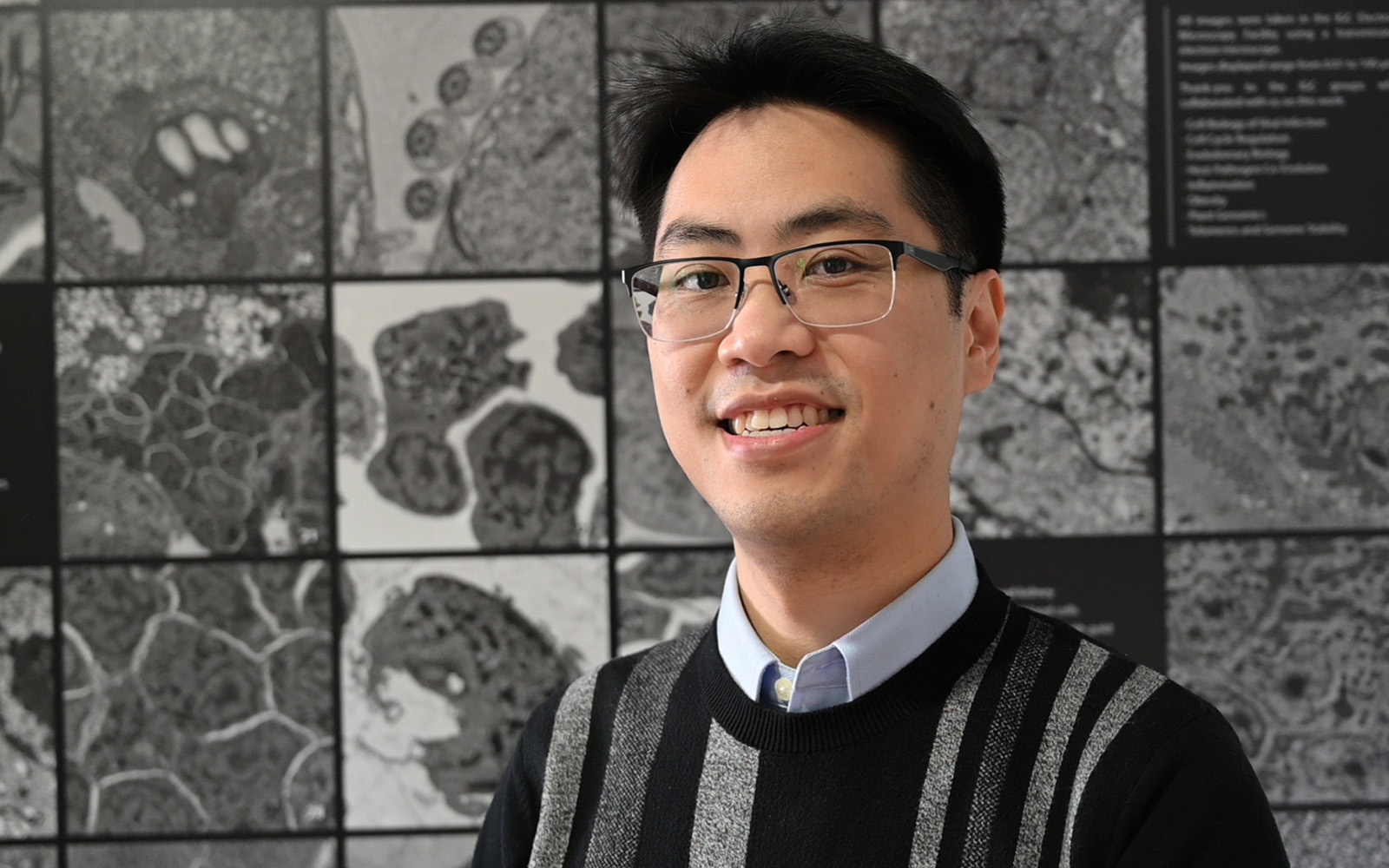ERC Grant awarded to IGC researcher
Waldan Kwong, Principal Investigator at the Instituto Gulbenkian de Ciência, awarded with 1.5M€ European Research Council Grant

The grant, with a highly competitive funding scheme, selects promising early-career scientists who have generated outstanding supervised work, and who have come up with exceptional research proposals.
The new ERC grant will allow Waldan Kwong, leader of the Microbial Genomics & Symbiosis Lab, at the Instituto Gulbenkian de Ciência, to further his study on the Genetic factors Enabling Microbiome Symbioses. In a nutshell, the project awarded with 1.5M€, will uncover fundamental principles of microbial communities, which can eventually be used to design better methods to improve microbiome resilience, such as through diet or using probiotics.
Microbes living in symbiosis with animals have important roles in enhancing host health, such as by provisioning nutrients and defending against pathogens. Thus, it is important to figure out the factors that allow these stable host-microbe relationships to be maintained.
With the grant, Waldan will study the genetic factors enabling microbiome symbioses using bees, as a natural model system with a remarkably conserved microbiome, which can be easily manipulated and studied in the lab. The gut microbiome is essential for the wellbeing of many animals including humans and bees. However, the genetic factors that enable stable, healthy microbiomes remain poorly understood. In particular, little is known about how different members of a gut microbial community communicate and interact with one another, both at the molecular level (which genes underlie the interactions) and the ecological level (how these genes are distributed across populations). Due to the complexity of most gut microbiomes, previous work in this field has largely been limited to in vitro studies using simplified, synthetic communities. In contrast, the core aim of this project is a systematic analysis of microbial interaction mechanisms at both the molecular and ecological levels. Unlike many other systems, the team can culture all members of the bee gut microbiome and recently have developed genetic tools for their manipulation. The researcher will leverage these unique advantages, together with expertise in social bees (honey bees, bumble bees) and microbial genetics, in an integrative approach to fulfil the project objectives.
Waldan explains the project´s “aim is to uncover how microbial communities form and persist, and to identify the genes underlying the interactions between the members of these communities”. The researcher will also seek to “understand the ecological and evolutionary basis of microbial communities – how they differ between populations and how they evolve over time.” This ERC grant will allow the IGC “to build up a team of outstanding researchers at the IGC to bring this project to life. It will enable the funding of not only research but also the training of students and technical personnel. In doing so, we aim to enrich the growing microbiome research community in Portugal, and to expand our collaborative networks across the globe” addresses the new awardee.
See Press Release
